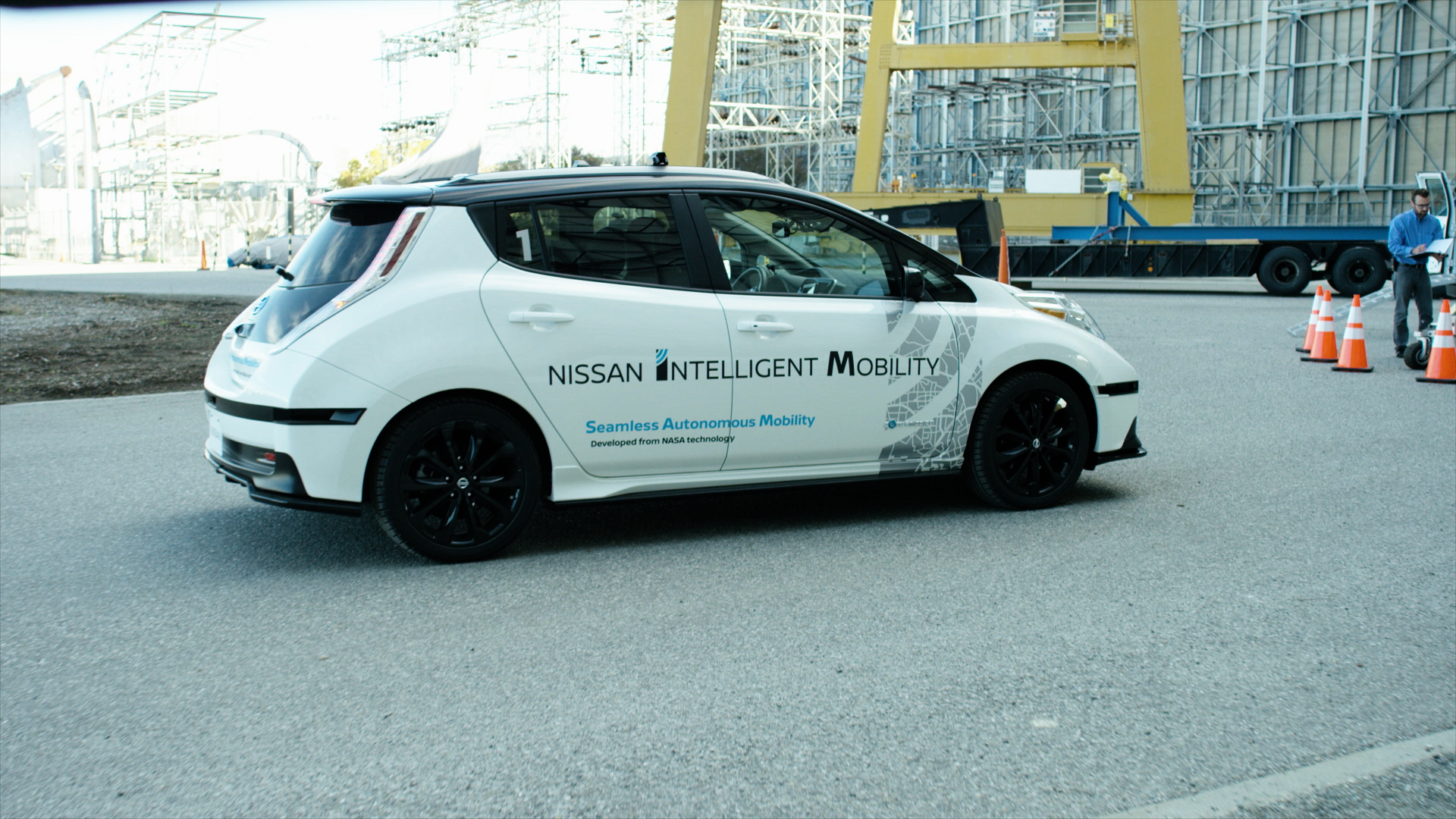Investing in autonomous taxi stocks may be the next big opportunity for savvy investors looking to capitalize on the future of transportation. With advancements in self-driving technology and a growing demand for convenient and cost-effective transportation solutions, autonomous taxis are poised to revolutionize the way we travel.
In this article, we will explore the concept of autonomous taxis, their potential impact on the transportation industry, and exciting investment opportunities that lie within this emerging market.
The Rise of Autonomous Taxis: A Game-Changing Revolution
Autonomous taxis, also known as self-driving or robo-taxis, are vehicles equipped with advanced sensors and AI technology that can operate without human intervention. These taxis have the potential to disrupt the transportation industry by reducing labor costs, increasing efficiency, and improving traffic flow.
Additionally, they can contribute to a cleaner environment by optimizing routes and minimizing idle time. Investing in companies developing self-driving technology and operating autonomous taxi fleets presents exciting investment opportunities for those looking to embrace this revolutionary change in transportation.
Understanding the Autonomous Taxi Market
The autonomous taxi market is projected to grow significantly, reaching a value of $556.67 billion by 2026 with a CAGR of 36.4% from 2019 to 2026. Tesla and Waymo are key players in this space.
Tesla’s Autopilot system shows potential for disrupting the market with its plans for full autonomy. Waymo, known for its pioneering efforts in autonomous driving, has successfully deployed fully autonomous vehicles and launched pilot programs for ride-hailing services.
As technology advances and regulations catch up, the autonomous taxi market holds immense potential for transforming transportation. It will be exciting to see how this industry evolves and shapes our future.
Why Autonomous Taxis Could Be a Lucrative Investment Opportunity
The rise of autonomous taxis presents a compelling investment opportunity due to the growing demand for this convenient and sustainable transportation service.
Autonomous taxis offer numerous benefits for consumers, including convenient door-to-door transportation, cost savings, and enhanced safety by eliminating human error. Cities also stand to gain from reduced traffic congestion and improved air quality, as these vehicles optimize routes and decrease carbon emissions.
Investing in autonomous taxi services aligns with the evolving needs of consumers and cities, making it a potentially lucrative venture. With convenience, cost savings, safety benefits, and positive environmental impacts, autonomous taxis have the potential to transform the transportation industry.
Evaluating Potential Risks and Challenges
The journey towards achieving full autonomy in the realm of autonomous driving technology is not without its fair share of challenges. While significant progress has undoubtedly been made, several technical hurdles remain to be overcome.
These obstacles can impede the realization of truly self-driving vehicles, capable of navigating through unpredictable weather conditions, complex urban environments, and interactions with human drivers and pedestrians.
In addition to technical challenges, deploying autonomous taxis faces regulatory hurdles and legal considerations that vary across different jurisdictions. Navigating local regulations and public perception is a critical aspect that companies operating in this space must address.
Each region may have its own set of rules governing the operation of autonomous vehicles on public roads. Ensuring compliance with these regulations while simultaneously addressing public concerns regarding safety, privacy, and job displacement is a delicate balancing act.
Liability concerns also loom large in the development of autonomous taxis. Determining responsibility in the event of accidents or malfunctions involving self-driving vehicles can be an intricate matter.
It becomes essential to establish clear guidelines that allocate liability between manufacturers, operators, and other parties involved in the deployment of self-driving technology. This enables swift resolution and ensures that accountability is properly assigned.
Table: Regulatory Hurdles and Legal Considerations
| Challenge | Description |
|---|---|
| Navigating local regulations | Different regions have varying regulations governing the operation of autonomous vehicles on public roads. |
| Public perception | Addressing public concerns regarding safety, privacy, and job displacement associated with autonomous taxi deployment. |
| Liability concerns | Establishing guidelines for determining responsibility in accidents or malfunctions involving self-driving technology. |
The path towards fully autonomous driving presents numerous risks and challenges that demand careful evaluation and proactive resolution. Overcoming technical obstacles while successfully navigating through regulatory frameworks will be crucial in bringing about a future where self-driving technology can thrive safely and efficiently.
Tips for Successful Investing in Autonomous Taxi Stocks
Investing in autonomous taxi stocks requires careful research and staying informed about technological advancements and regulatory developments. Analyze the financials, growth potential, and competitive advantages of each company before making any investment decisions.
Stay updated on the latest industry trends to make informed choices, and diversify your portfolio by investing in multiple companies to manage risk effectively.
| Tips for Successful Investing in Autonomous Taxi Stocks |
|---|
| – Conduct thorough research on each company’s financials |
| – Stay updated on technological advancements and regulatory developments |
| – Diversify your portfolio by investing in multiple companies |
An Expert’s Perspective on Autonomous Taxis
We interviewed Dr. Johnson, an industry expert and professor of transportation economics, to gain insights into the future of autonomous taxis. According to him, autonomous taxis have the potential to revolutionize urban mobility by offering a more efficient and sustainable transportation solution.
However, challenges such as public acceptance, infrastructure requirements, and regulatory frameworks need to be addressed for widespread adoption.
Public acceptance is a major hurdle that must be overcome. Trust in self-driving technology needs to be built among the general public. Additionally, the development of necessary infrastructure, including charging stations and connectivity solutions, is crucial for large-scale deployment.
Regulatory frameworks also need careful consideration to ensure safety standards and address liability concerns. The rise of autonomous taxis may disrupt traditional professional driving jobs but could create new opportunities in vehicle maintenance and fleet management.
Furthermore, cities will need to adapt their urban planning strategies to effectively accommodate autonomous vehicles. Optimized routing algorithms and reduced congestion can improve overall transportation systems.
Conclusion
Investing in autonomous taxis offers exciting opportunities for those willing to embrace the revolution in transportation. With growing demand for convenient and cost-effective solutions, autonomous taxi stocks have the potential to yield significant long-term returns.
To make informed investment decisions, it is essential to stay informed about technological advancements, regulations, and associated risks. Thorough research and evaluation of each opportunity will help align investments with goals and risk tolerance.
While autonomous taxis hold promise, it’s important to consider factors like public perception, safety regulations, and technological limitations before investing.
Best Self-Driving Car Stocks to Invest In
The autonomous vehicle industry is rapidly evolving, presenting investors with exciting opportunities. If you are considering investing in self-driving car stocks, here are some companies worth exploring:
Lyft has emerged as a key player in the development of self-driving technology. Through strategic partnerships with autonomous vehicle manufacturers, Lyft has positioned itself well to capitalize on the growth of autonomous taxis. With a focus on ride-sharing services, Lyft’s commitment to innovation makes it an attractive investment option.
As one of the world’s leading automakers, Ford is heavily invested in autonomous driving technology. Its subsidiary, Ford Autonomous Vehicles LLC, is dedicated to advancing self-driving capabilities.
Ford’s commitment to research and development, along with its collaborative approach within the industry, positions it as a strong contender in the autonomous taxi market.
Baidu, a prominent Chinese technology company, has made significant strides in developing self-driving technology. With a strong presence in China’s thriving market and strategic partnerships with key players in the industry, Baidu is well-positioned for success in the autonomous taxi space.
Investing in Baidu offers exposure to both cutting-edge technology and China’s growing demand for autonomous transportation.
Aptiv is a global leader in advanced driver-assistance systems and autonomous driving solutions. With expertise in automotive technology and collaborations with major automakers, Aptiv presents an attractive investment opportunity within the autonomous taxi market.
Their focus on developing reliable and safe solutions aligns perfectly with the increasing demand for self-driving vehicles.
Investors should conduct thorough research on these companies before making any investment decisions and consider consulting with a financial advisor for personalized guidance.
Remember that investing always comes with risks and past performance does not guarantee future results. It is crucial to evaluate your own financial situation and risk tolerance before venturing into any investments.
[lyte id=’pUtJ8HPZRkw’]







